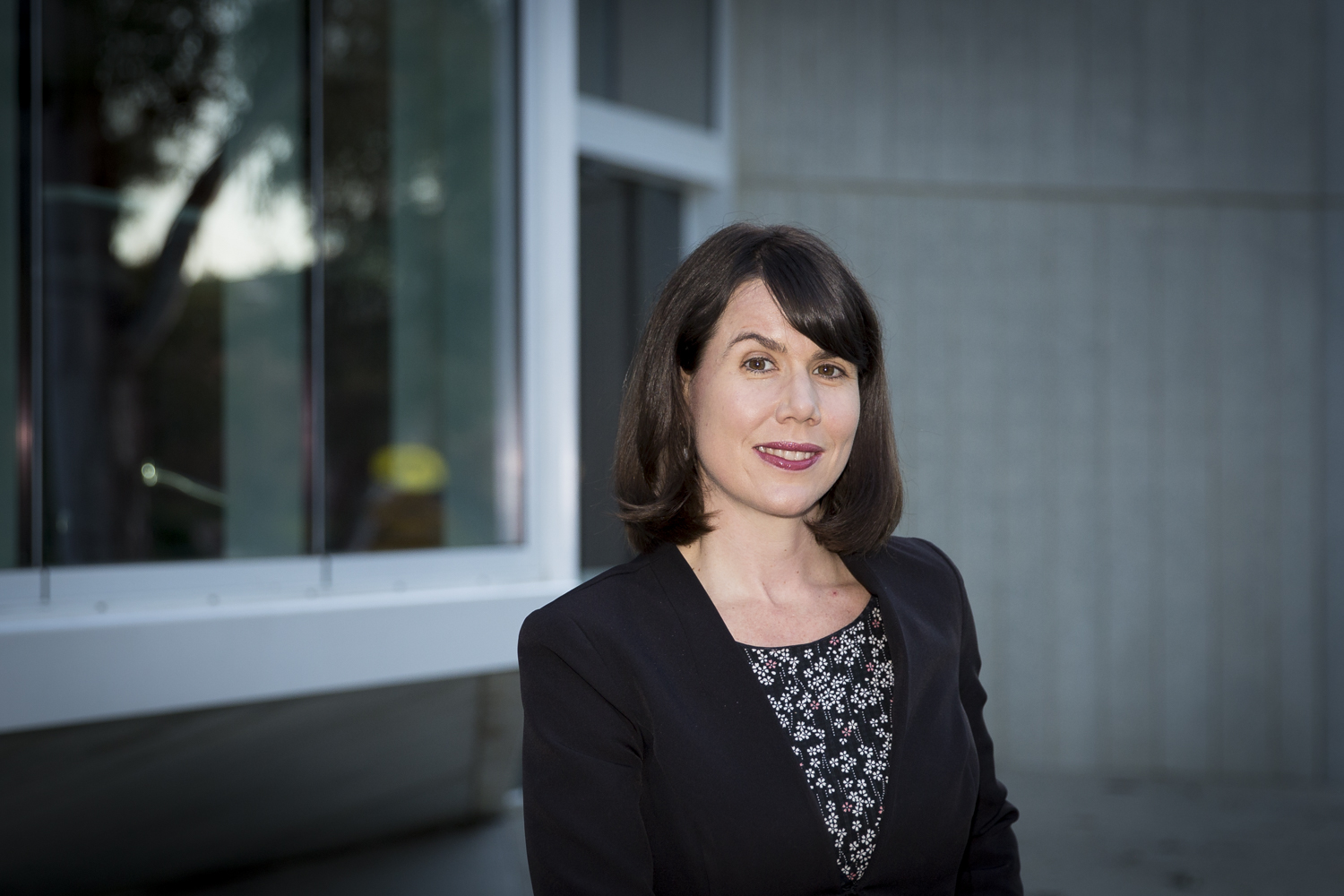Crimmigration and (Critical) Legal Theory
Associated with:
Crimmigration - the intersection of criminal and immigration law - has been studied by academics from different backgrounds, through multiple concepts such as membership, exclusion, deterrence and administrative justice. This roundtable will reflect on how the concept of crimmigration has challenged (critical) legal theory but also on the ways in which (critical)legal theory has helped to unravel the concept of crimmigration and gave rise to important new questions and avenues for (socio-)legal research.
Speakers:
- Graham Hudson, Associate Professor and Associate Dean, Academic at the Lincoln Alexander School of Law, Canada.
Graham Hudson is an Associate Professor and Associate Dean, Academic at the Lincoln Alexander School of Law. His research focuses on the local governance of migration and security, with a focus on sanctuary cities and jurisdictional conflicts in federal states. He is co-editor (with Idil Atak) of Migration, Security and Resistance: Global and Local Perspectives (Routledge Press, 2021) and publishes in a range of law and social science journals. He holds multiple research grants including a 5-year SSHRC Insight Grant (as Principal Investigator) on sanctuary cities in Canada. This project examines the implementation of Access Without Fear policies in Canadian cities as well tensions between privacy and data sharing in the fields of policing, health, and social assistance.
Abstract: The externalization of borders is a well-known process involving the “territorial and administrative expansion of a given state’s migration and border policy” to foreign states and jurisdictions (Casas-Cortes et al., 2015). A similar process of border “internalization” is also underway, through which spatially mobile performances, practices and technologies of exclusion operate through local public institutions, such as police. Yet, in federal states, national (and sometimes regional) governments decry the emergence of sanctuary city policies and other instances of local inclusion, citing the technical boundaries drawn through written constitutions and federalism doctrine. This strategy is productive due in part to the background conflation of immigration law and criminal law and the myths of dual sovereignty that underpin federalism, together enabling local police to engage in border security in relative autonomy from local accountability mechanisms. Through an examination of Canadian security practices, legislation, and case law, this paper examines how crimmigration law and federalism doctrine relate and documents how local police have acquired far more authority over the governance of migration than cities ever could.
- Jose Angel Brandariz, Associate professor of criminal law and criminology at the University of A Coruna, Spain.

José A. Brandariz holds a PhD in law and is a professor of criminal law and criminology at the University of A Coruna, Spain. He has been an associate editor of the European Journal of Criminology (2018-2021) and a member of the executive board of the European Society of Criminology (2016-2019). He has published some twenty books and 165 journal articles and book chapters, and has been visiting professor and visiting research fellow at various international universities, such as Bologna (Italy), Buenos Aires (Argentina), Coimbra (Portugal), Chicago (USA), Freiburg (Germany), Milan (Italy), Northern Arizona (USA), and Pompeu Fabra (Spain), among others. He has particularly focused his research on migration enforcement, penality and citizenship issues in the last decade. In this specific research field, José has participated in and co-coordinated various EU-funded research projects and has published his work in high-ranked journals such as the Central and Eastern European Migration Review, the International Journal for Crime, Justice and Social Democracy and Theoretical Criminology.
Abstract: Crimmigration law scholars have long emphasised that the new ways in which criminal law and immigration are merging seriously challenge a number of basic legal principles and safeguards. This literature claims as well that crimmigration arrangements are undermining rehabilitation goals, since they exclude noncitizens from penal welfarism forms of criminal justice. Curiously, these points have been particularly highlighted by scholars exploring crimmigration policies in countries in which noncitizens are playing a relatively minor role within the criminal justice system. This presentation reflects on these claims by taking into account the diversity of crimmigration and bordered penality practices across Europe. Specifically, the presentation examines what is the actual significance of the crimmigration merger on legal principles and legal safeguards in national criminal justice systems dealing with sizeable contingents of noncitizens. That reflection may assist in mapping the varied ways in which crimmigration arrangements are changing the contours of criminal law and criminal justice in the old continent.
- Magdalena Kmak, Professor of Public International Law, Åbo Akademi University, Finland.

Magdalena Kmak is a Professor of Public International Law, with a specialization in Migration and Minority Research at Åbo Akademi University (Finland). She is a PI and Consortium Director in a project ‘Diversity, Trust and Two-Way Integration (Mobile Futures)’ funded by the Strategic Research Council established within the Academy of Finland (2021-2027) and a Team Leader in the Subproject: Migration and the narrative of Europe as an “Area of freedom, security and justice” at the The Centre of Excellence in Law, Identity and the European Narratives at the University of Helsinki (Finland). Magdalena’s current research focuses on the multifaceted relationship between law and mobility, in particular in the context of global migration and minority regimes. Her research interests encompass new minorities, exile studies and history of migration, mobility studies, public international law, human rights and international and European refugee and migration law. Magdalena is also co-founder of the Nordic Network on Climate Related Displacement and Mobility.
Abstract: This talk addresses the relationship between crimmigration and critical legal theory from the perspective of mobility studies. By introducing the concept of Mobile Law, I will show how ‘setting law in motion’ reveals, on one hand, the relationship between construction of universal subjects and coloniality resulting from differential embodied mobility and, on the other hand, the different forms of resistance that law’s mobile turn may entail. As shown by Hagar Kotef, the mobility lens reveals the emergence of liberal European subjectivity as rooted in freedom, understood as orderly movement and juxtaposed with disorderly movement of Colonial ‘Others’. The modern Nation-State machine utilizes the disorderly moving ‘Others’ for its own construction and perpetuation through the monopolization of violence and legitimate means of orderly movement (Kotef, 2015). From this perspective, Katja Franko’s concept of the Crimmigrant other (2019) serves as a constitutive ‘Other’ whom this violence can be directed at by the nation state. The constant failure of the migration system – that is based on violence – prompting further criminalization of migration serves the nation-state machine and fosters its continuous reproduction. Understanding the role of crimmigration and the Crimmigrant Other for the nation-state can give us tools to question the liberal subjectivity rooted in orderly mobility and look for possibilities of resistance through law.
- Kate Ogg, Associate Professor of Law, Australian National University, Australia.

Kate Ogg is an Associate Professor at the Australian National University’s College of Law. She undertakes interdisciplinary research in the areas of refugee law, human rights, litigation, access to justice and feminist legal theory. Kate is the co-editor of 'Feminist Engagement with International Law' (Edward Elgar, 2019). Her monograph 'Protection from Refuge: From Refugee Rights to Migration Management' will be published with Cambridge University Press in 2022. In 2021, Kate was part of a team led by Professor Susan Kneebone that was awarded an Australian Research Council Discovery Project Grant to conduct a study on private refugee sponsorship.
Abstract: Despite crimmigration being the topic of a growing field of scholarship, there is a dearth of gender research that explicitly engages with crimmigration theory. This lacuna has prompted calls for increased research on gender and crimmigration. However, the dilemma for feminist scholars is that crimmigration theory has developed with little reference to gender. Thus, there needs to be a sexing of crimmigration theory to unearth its gendered assumptions and biases. Associate Professor Kate Ogg undertook the first feminist examination of crimmigration theory as part of a research project that considered the place of crimmigration in the Australian context (‘Sexing the Leviathan’ in Crimmigration in Australia, Springer, 2019). Kate will discuss the main argument presented in her research (that crimmigration theory misrepresents many women’s experiences of the intersections between criminal and immigration law but also that feminist perspectives can enrich our understanding of crimmigration law). She will also critically reflect on the methods she employed in this research (Kate drew on feminist criminology to analyse the experience of three women who came to Australia seeking refugee protection) and suggest new horizons for crimmigration research based on methodological developments in the field of forced migration.
You can register here.


 Add to calendar
Add to calendar


